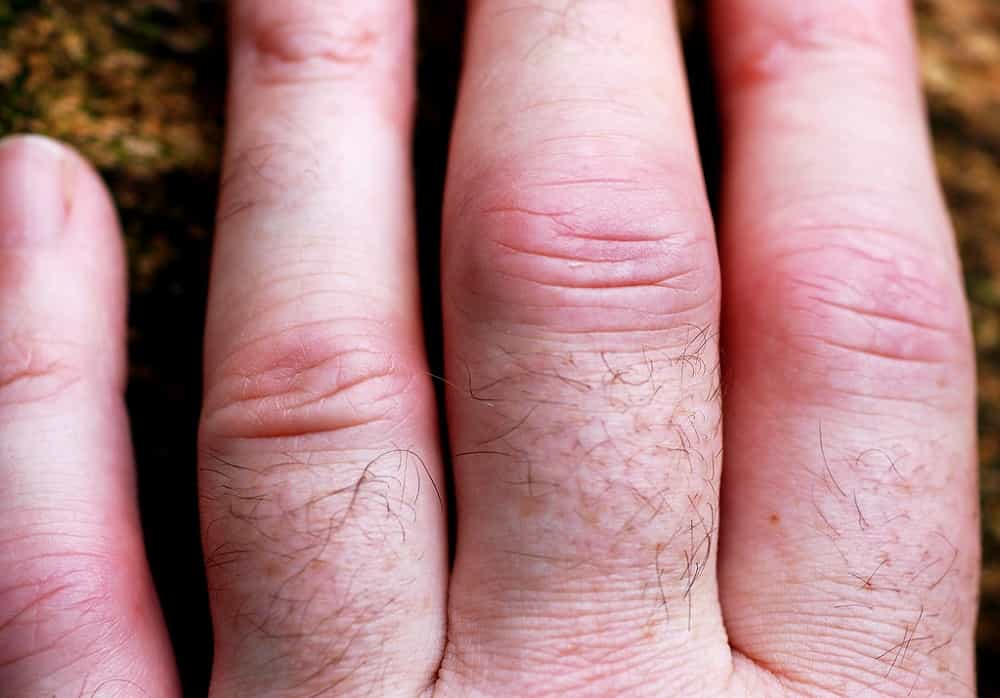Living with any painful condition can be hard. In many cases arthritis can be debilitating and prevent you from undertaking normal daily activities. This is why it’s important that you be aware of the most common symptoms. If you are concerned that you are suffering from rheumatoid arthritis you need to speak to your doctor and get the best possible advice.
Of course, it’s a good idea to check you’re paying the best possible price for your comprehensive health cover first!
Symptoms of Rheumatoid Arthritis
During the onset of rheumatoid arthritis the symptoms are very similar to an array of other medical conditions. This can make it difficult to diagnose. Of course, understanding the most common symptoms will help:
Aching Joints
If a joint starts to ache without an obvious cause you should be concerned. However, there are many causes and rheumatoid arthritis tends to affect more than one joint at a time. Therefore, if the pain is in more than one joint it can be a sign of rheumatoid arthritis.
Stiff Joints
The same is true of stiff joints, it’s usually more than one joint and has no other obvious reason. The stiffness and aches will generally be worse in cold weather.
High Temperature
Rheumatoid arthritis causes inflammation in your body. This makes the area hot to touch and increases your overall body temperature. It’s normal to feel feverish.
Fatigue
As your body fights the infection it will use up your available resources, making you feel tired or even exhausted all the time.
Weight Loss
You may also start to lose weight as your body deals with the disease and stops absorbing nutrients properly. It’s likely that the pain and stiffness will also decrease your appetite.
Common Risk Factors
Rheumatoid arthritis happens when your immune system attacks your own cells. It’s not yet known why this happens but you are generally at greater risk in the following circumstances:
As you age
The risk increases as you age, most people with rheumatoid arthritis are over 60.
If you’re a woman
Women simply suffer more; RA are typically two-to-three times higher in women than men.
Genetic tendency
Research is still ongoing but there appears to be a link between rheumatoid arthritis and people born with specific genes.
Smoking
This will increase your risk of developing rheumatoid arthritis.
Obesity
The heavier you are, the greater the risk.
In conclusion
If you start experiencing any of the above symptoms it’s time to get yourself checked out by a professional. The sooner you do it the easier the condition is to manage.
You may also like
Hearing loss: things to know before buying a hearing aid
Choosing a hearing aid isn’t easy, especially if you’ve never used one. They come in different shapes, colors and levels of technology.The first factor in determining which hearing aid to choose is your hearing loss, which could range from very mild to severe. Next, you need to know what you would like it to be… Continue reading Hearing loss: things to know before buying a hearing aid
Small Lymphocytic Lymphoma (SLL): Symptoms and Treatments, Causes and Diagnosis
Small lymphocytic lymphoma (SLL) is a cancer of the immune system. It affects infection-fighting white blood cells called B cells. SLL is a type of non-Hodgkin’s lymphoma, which along with chronic lymphocytic leukemia (CLL) indicates the same type of disease, treated the same way. Whereas in SLL, the cancer cells reside primarily in the lymph… Continue reading Small Lymphocytic Lymphoma (SLL): Symptoms and Treatments, Causes and Diagnosis
Diabetes Type 2: Epidemiology and Prevention
Diabetes Epidemiology Diabetes is a very common disease. New updated data from the new International Diabetes Federation (IDF) Diabetes Atlas show that more than 34 million Americans have diabetes (1 in 10 individuals), of whom approximately 90-95% have type 2 diabetes. In UK the situation is slightly better: with nearly 4 million sufferers, about one… Continue reading Diabetes Type 2: Epidemiology and Prevention
Small Lymphocytic Lymphoma (SLL): Stats, Causes and Diagnosis
Small lymphocytic lymphoma (SLL) is a cancer of the immune system that affects the white blood cells that fight infection, called B cells. SLL is a type of non-Hodgkin’s lymphoma, as is chronic lymphocytic leukemia (CLL). Both cancers are basically the same disease, and are treated in almost the same way. The difference between the… Continue reading Small Lymphocytic Lymphoma (SLL): Stats, Causes and Diagnosis
